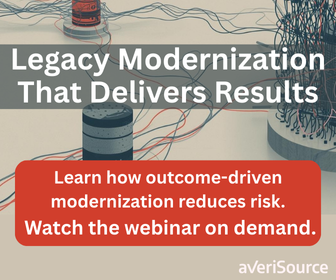IBM Introduces the Spyre Accelerator for Commercial Availability
This week at TechXchange, IBM announced the upcoming general availability of the IBM Spyre Accelerator, an AI accelerator enabling low-latency inferencing to support generative and agentic AI use cases while prioritizing the security and resilience of core workloads.
Earlier this year, IBM announced the Spyre Accelerator would be available in IBM z17, LinuxONE 5, and Power11 systems. Spyre will be generally available on October 28 for IBM z17 and LinuxONE 5 systems, and in early December for Power11 servers.
For IBM clients, Spyre Accelerators offer fast, secured processing with on-prem AI acceleration. This marks a significant milestone, allowing businesses to leverage AI at scale while keeping data on IBM Z, LinuxONE and Power systems. In mainframe systems, coupled with the Telum II processor for IBM Z and LinuxONE, Spyre offers enhanced security, low latency, and high transaction rate processing power.
“One of our key priorities has been advancing infrastructure to meet the demands of new and emerging AI workloads,” said Barry Baker, COO, IBM Infrastructure & GM, IBM Systems. “With the Spyre Accelerator, we’re extending the capabilities of our systems to support multi-model AI – including generative and agentic AI. This innovation positions clients to scale their AI-enabled mission-critical workloads with uncompromising security, resilience, and efficiency, while unlocking the value of their enterprise data.”
Source: IBM Press Release
Kyndryl Survey 2025: Mainframe Modernization Projects Deliver 2-3X ROI
Kyndryl has released its third annual State of Mainframe Modernization Survey, reflecting input from 500 IT and business leaders. The findings show the mainframe’s role is expanding within hybrid IT strategies, with organizations pursuing phased, pragmatic modernization approaches rather than large-scale “big bang” projects.
Key takeaways from the report:
Strategy shifts: 80% of organizations changed their modernization approach in the past year in response to market dynamics, geopolitical developments, regulations, and emerging technologies.
Return on investment: Projects are delivering between 288% and 362% ROI depending on the modernization path chosen — whether modernizing on-platform, integrating with cloud, or moving workloads. Overall, costs have decreased while ROI has climbed.
AI adoption: 88% of respondents are implementing or planning to implement generative AI on the mainframe. Collectively, organizations expect to save $13 billion and generate $20 billion in new revenue from AI over the next three years.
Platform usage: 56% reported increased mainframe utilization in the past year as they integrate AI and hybrid IT use cases.
Skills and workforce: 70% struggle to find talent with both mainframe and emerging tech skills, while 74% rely on third-party providers.
Compliance and security: 94% say regulatory compliance heavily shapes modernization strategies, and security remains a central consideration.
Perception vs. reality: Perceived importance of the mainframe decreased 11%, yet 56% report increased usage of mainframes in hybrid IT. Fewer applications are moving off than last year, and nearly all respondents report consistent or growing usage as they balance flexibility, cost, and performance.
“The mainframe has become the AI-fueled catalyst of hybrid enterprise strategies, delivering billion-dollar returns while powering innovation for customers,” said Hassan Zamat, Global Practice Leader for Core Enterprise at Kyndryl. “Organizations are taking a much more pragmatic approach to modernization to drive better business outcomes and incorporate new technologies. Working with the right partners can help them build a resilient and future-ready platform.”
Kyndryl’s findings underscore that the mainframe remains a central pillar of enterprise IT. As organizations refine their approaches, the platform is being positioned not just as a system of record but as an engine for hybrid integration, AI-driven efficiency, and long-term resilience in a shifting business and regulatory environment.
BMC 2025 Mainframe Survey: Confidence, Generational Shift in Views on Mainframe Development
Now in its 20th year, BMC’s annual Mainframe Survey continues to track how organizations rely on and evolve with the platform. Surveying more than 1,000 mainframe practitioners and stakeholders globally, this year’s findings mark a milestone: 97% of respondents view the mainframe as a long-term platform or one for new workloads — the highest level of confidence recorded since the survey began. In addition, 72% anticipate growth in general purpose capacity, signaling continued investment.
Key findings include:
Generational Shift: Millennials and Gen Z now make up 66% of the mainframe workforce, nearly doubling since 2018. These younger professionals are strong advocates for the platform’s future while advancing practices such as DevOps and AIOps.
Modern Workloads: Java is surging as a development language, with 72% writing new applications in Java and more than half rewriting existing ones. This shift shows how mainframes are adapting to meet enterprise demands with modern tooling.
AI in Practice: Artificial intelligence is moving from experimentation to execution. Sixty-five percent already use generative AI with the mainframe, and 74% rank it as highly important to their strategy in the next two years. AIOps adoption also climbed to 72%.
Security Priorities: Compliance and security remain top concerns for the sixth straight year. Organizations report stronger ransomware defenses, with 85% rating their controls very or extremely effective.
“The mainframe has always been the backbone of the enterprise, but what we’re seeing now is a redefinition of its role to fit modern mainframe optimization practices,” said Steven Dickens, CEO and principal analyst of HyperFRAME Research. “With a digitally native workforce, the rise of cloud and AI-driven workflows, and the emergence of AIOps as a top priority, the mainframe is no longer just about stability — it’s about fueling innovation and driving competitive advantage.”
With steady investment, growing capacity, and a new generation of professionals entering the field, BMC’s survey suggests the mainframe industry is positioned to remain an important foundation for critical workloads in the years ahead.
Rocket Software Advances COBOL Modernization with GenAI and ARM Ready Deployment, Enabling Disruption-Free Transformation
Rocket Software has announced new innovations to its COBOL solutions, helping businesses update critical applications without disrupting operations or compromising reliability. The updates highlight Rocket’s commitment to COBOL as a mission-critical technology. New features include opt-in GenAI-assisted development, expanded ARM processor support, and enhanced modernization expertise to help enterprises evolve systems, integrate with modern platforms, and reimagine COBOL’s future role.
COBOL continues to power 70% of the world’s business transaction processing in industries such as banking, insurance, retail, and government. Yet outdated COBOL systems and tools can hinder innovation, raise risks, and expose organizations to security threats. Rocket’s advancements give enterprises a safe, cost-effective path to modernize applications, reduce risk, and address talent shortages while unlocking new opportunities for agility and growth.
The company’s updated COBOL innovations include:
- Visual COBOL: Standardizes COBOL development alongside other languages, enabling modern tools, DevOps workflows, faster delivery, and better collaboration while extending the value of COBOL business logic.
- COBOL Server: Provides a portable, high-performance deployment platform with support for cloud, containers, APIs, .NET, and Java. This allows low-risk modernization and seamless integration with evolving architectures.
- COBOL Analyzer: Delivers GenAI-powered insights and integration with modern workflows, making COBOL systems easier to understand, manage, and evolve. It boosts productivity and reduces dependence on niche skills.
“With decades of expertise in COBOL modernization, Rocket Software is not just supporting COBOL— we’re transforming how it’s developed, deployed, and integrated to ensure it remains a vital engine of business innovation and digital transformation for years to come,” said Phil Buckellew, President of the Infrastructure Modernization Business Unit at Rocket Software.
Source: Rocket Software





0 Comments